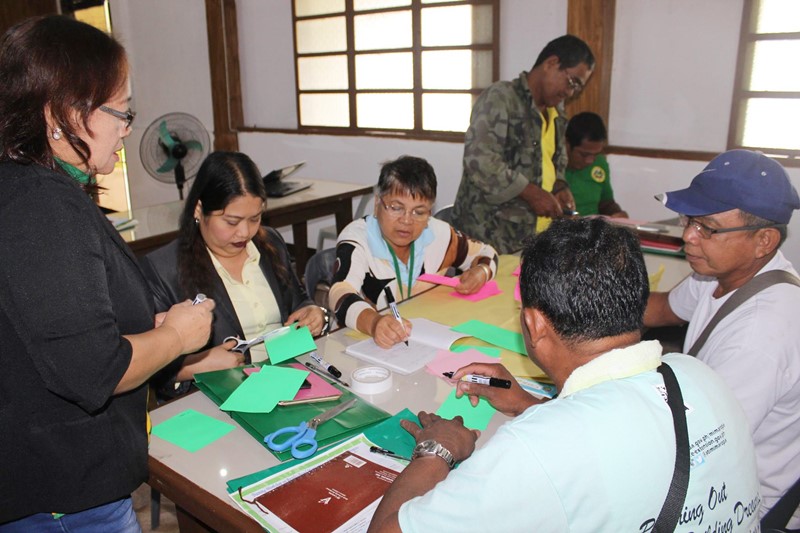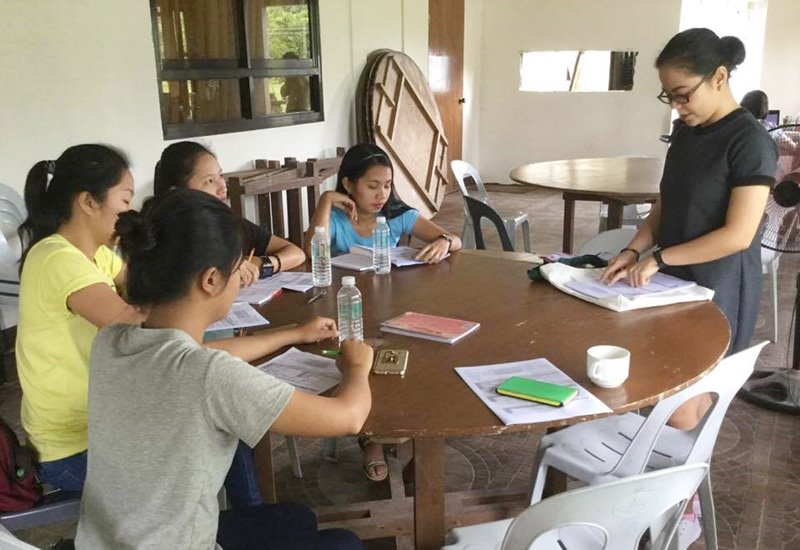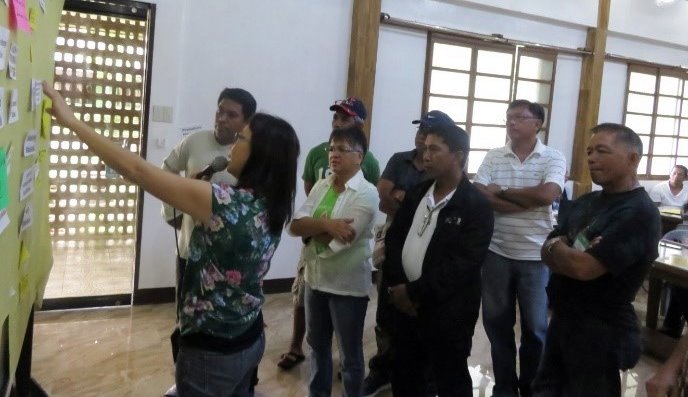This activity is an off-shoot of the Training-Workshop on Results-based Monitoring and Evaluation for ISARD conducted by SEARCA in August 2016, which served as a forum for SEARCA partners to learn and act collaboratively in understanding, developing, and utilizing an RBME system within the context of ISARD, anchored on building and empowering human and institutional capacities.
 The RBME re-echoing training-workshop in Victoria, under the ISARD Pilot Project titled Revitalizing the Calamansi Industry in Victoria, Oriental Mindoro through Strengthening Linkages among Farmers, LGU, NGAs, SUC, CSOs and the Private Sector, aimed to provide a general overview of the role of measurement for determining project performance and success. Apart from the ISARD Piloting program, RBME can also be applied in other relevant RD&E projects of MinSCAT, agriculture-related programs of Victoria LGU, and in conducting basic farm-level monitoring and evaluation of the VKFF members.
The RBME re-echoing training-workshop in Victoria, under the ISARD Pilot Project titled Revitalizing the Calamansi Industry in Victoria, Oriental Mindoro through Strengthening Linkages among Farmers, LGU, NGAs, SUC, CSOs and the Private Sector, aimed to provide a general overview of the role of measurement for determining project performance and success. Apart from the ISARD Piloting program, RBME can also be applied in other relevant RD&E projects of MinSCAT, agriculture-related programs of Victoria LGU, and in conducting basic farm-level monitoring and evaluation of the VKFF members.
Basic M&E concepts and principles; situation, scenario, and stakeholder analysis and organization and management; the basic RBME framework; and sustainability planning of the Project using the RBME System, were covered. And by the end of the training-workshop, an RBME plan for the ISARD Calamansi pilot project, with inputs directly provided by the primary stakeholders and direct beneficiaries, was completed. A monitoring team was also organized to operationalize and facilitate the implementation of the RBME Plan.
Operationalizing their learnings from SEARCA's RBME training-workshop in August 2016, Dr. Ma. Concepcion L. Mores, ISARD On-site Coordinator, Dr. Lourdes V. Icalla, MinSCAT Director for Extension, Ms. Katherine P. Escalona, MinSCAT Director for Research, Ms. Caroline G. Manuel, Victoria Municipal Planning and Development Coordinator, Mr. Henry M. Custodio, SEARCA Program Specialist for Research, and Ms. Angelic M. Reglos, SEARCA Project Assistant, served as resource persons and experts for the RBME workshop.
 Simultaneous to the RBME Training-Workshop, SEARCA conducted the initial phase of the farm and household baseline survey of the VKFF members. The VKFF is composed of farmer leaders from different calamansi farmer organizations in Victoria, which were organized specifically for the ISARD Pilot Project. The data collected will not only serve as inputs in the RBME system, but also for a socio-economic impact evaluation that will be conducted upon completion of the ISARD Piloting project in 2018.
Simultaneous to the RBME Training-Workshop, SEARCA conducted the initial phase of the farm and household baseline survey of the VKFF members. The VKFF is composed of farmer leaders from different calamansi farmer organizations in Victoria, which were organized specifically for the ISARD Pilot Project. The data collected will not only serve as inputs in the RBME system, but also for a socio-economic impact evaluation that will be conducted upon completion of the ISARD Piloting project in 2018.
A project team for the ISARD Piloting Project from SEARCA Research and Development Department developed the survey instrument that aimed to generate farm information on financing, production and marketing, as well as collect household data on consumption patterns, income and expenditure, and household profiling. SEARCA also conducted the training of enumerators and actual initial interview of selected farmer leaders.
The ISARD Calamansi Project in Mindoro is one of two ISARD pilot projects in the Philippines, under SEARCA's flagship program on Piloting and Upscaling Effective Models of ISARD. (Henry M. Custodio and Angelic M. Reglos)
